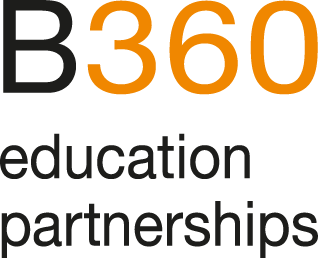Interview with Nic Vu Huu
Head Learning Management
Bank Julius Bär, Zürich
You have already hosted a B360 intern several times. Another student from our partner University in Zambia arrived a few days ago. This means a lot of extra work, responsibility and personal engagement for you and your team. What motivates you to do so?
We look at our partnership from three different angles. It is indeed an investment to on-board a student and I make sure that the investment is yielding positive results. In other words, the student has to produce work that benefits the company as well. In the case of our last intern, he produced a calculator to automate the financial forecast for our external education budget. Secondly, we believe we do have a social responsibility and we are glad to support the B360 organization in its effort develop students into strong professionals by giving them this international experience. Last but not least, we believe there is value in the cultural exchange on both sides. Welcoming students is also a learning experience for us and helps to broaden our horizon.
The students from Namibia/South Africa/Zambia coming to Switzerland have not been exposed to a business environment and have never been outside their country. What are the key cultural and professional challenges that they face and how do you help them to cope?
A key challenge linked to culture is communication. At Bank Julius Baer, English is the official business language but for many of us – myself included – English is not our mother tongue. Therefore we use English as lingua franca – in other words, English is the common language we use to communicate between speakers of whose native languages are different. In this context, we need to pay particular attention to clarify communication, rephrase sentences, asking clarifying questions etc. On the professional level, the challenges relate to the pace of business. Three months go by extremely fast and it is absolutely key to prepare for the on-boarding of the student and allocate the sufficient resources in order for them to become productive in such a short amount of time.
According to the B360 philosophy, the result of all efforts and activities should result/cumulate in a win-win situation for all parties involved. What is needed to make the three month internship a win-win situation for all parties involved according to the B360 philosophy/concept?
I think the recruitment process and on-boarding are the key success factors. Identifying the right competencies from the start is of paramount importance. Once the candidate has been selected, the next phase consists in rapid up-skilling. Then it’s about fine tuning the management style using approaches such as situational leadership in order to provide the students with the right level of challenge and support throughout their internship. The host families also play a key role in this partnership. They provide a home away from home and play a crucial role to help students cope with the challenges of living and working abroad.
How would you rate the cooperation with B360 before, during and after the internship?
The cooperation was excellent throughout. The briefing before the internship was particularly useful.
What is your personal advice you would like to give the student/intern for his/her future life in business?
As we like to say at Julius Baer Academy, “Learning begins with you, continues in a learning community and succeeds as a learning organization”. So I would advise the students to remain curious and to continue learning in order to be successful in their future life in business.
